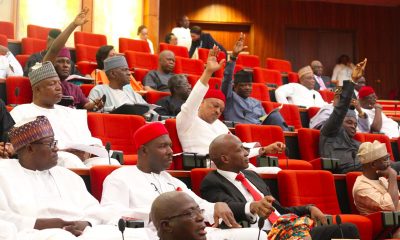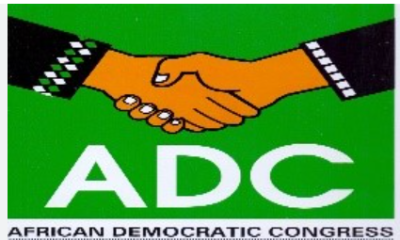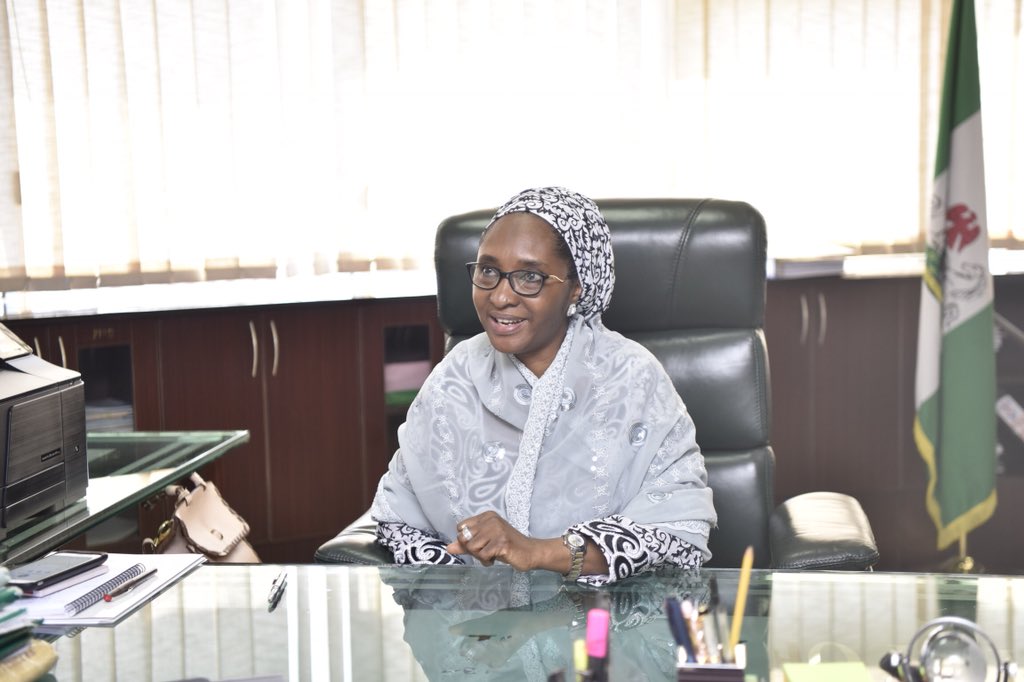The Federal government have unveiled the Strategic Revenue Growth Initiative to generate more non-oil revenues thereby increasing available resources to finance national development.
The minister of finance Zainab Ahmed at the official inauguration of the initiative in Abuja said that the aim was to harmonise efforts of all the revenue generating agencies in increasing revenues to government’s coffers.
The initiative will be implemented in the areas of achieving sustainability revenue generation to optimally collect revenues to maintain fiscal buoyancy and resilience.
“We will also be looking at new revenue streams and enhanced enforcement with regards to revenue collection on our existing revenue streams.
“Through the initiative, we hope to achieve cohesion between revenue generating entities and equipping them with cutting-edge tools and expertise needed to support high performance.’’
Ahmed said that as a way of increasing non-oil revenue, the government was looking at the possibility of increasing Value Added Tax (VAT).
“We are studying a possibility of a VAT increase but you also know that the increase of VAT requires an amendment of a law.
“It is most likely the VAT increase will be selective. It will be on special items so it won’t be across the board.
“I am sure you are already aware that there are a number of items that are exempted from VAT such as food and drugs.
“There would be a VAT increase during the course of 2019, we will announce later the items and what the rate will be.
“We will have to take a request to the National Assembly for amendment of the VAT law before it takes effect,’’ she said.
Representatives of the Federal Inland Revenue Service (FIRS), Nigeria Customs Service (NCS), Nigeria National Petroleum Corporation (NNPC), Accountant-General of the Federation and Nigeria Sovereign Investment Authority were present at the launch.
Also present, were representatives of the Debt Management Office (DMO), Central Bank of Nigeria (CBN) and the National Insurance Commission (NAICOM).
The major revenue generating agencies made presentations on the initiatives they would introduce in their respective agencies to increase revenue.
Babatunde Fowler, chairman, FIRS said that to increase tax revenue, the service plans to commence the drive to boost revenue by reviewing the present legal framework on tax.
He said that the Service plans to collaborate with Deposit Money Banks to get names of companies and individuals with funds in excess of N1 billion and ensure that appropriate tax was collected.
According to him, the Service will also link up with the Nigeria Customs to get data on companies that import goods into the country to ensure that they pay their fair share of tax.
In addition, he said that henceforth, the FIRS would ensure that it collects tax on properties owned by corporate entities in the country.
Also speaking, Hameed Ali, the comptroller-general of Nigeria Customs Service, said that the Service would focus on reducing smuggling, block misinvoicing and illicit financial flow of goods.
According to him, the Service will like to introduce new excise duties, but at the moment, the country only collects excise duty on alcohol and cigarettes.
He said the Service would also like to look carbonated drinks since they also have health implications for consumers.
In addition, Ali said that the Service wants the country’s policy on exports to be reviewed to allow the Service charge duties on goods being exported out of the country.
Ahmed Idris accountant-feneral of the federation (AGF), said his office would like to introduce the use of Treasury Single Account to all existing Nigerian embassies to enhance revenue.
As a way of blocking leakages, the AGF said his office would also link revenue generating agencies to the Government Integrated Financial Management Information System (GIFMIS).
He said that GIFMIS implementation would enable the Federal Government process financial transactions faster and also reduce opportunities for corruption and ensure safety of public resources.
Mohammed Dikwa, permanent secretary, Ministry of Finance, said the ministry plans to review the tax incentive policy of Nigeria to ensure that the country was not losing interest unnecessarily.
He said that the ministry would also review the targets and remittances of all the revenue generating agencies under its supervision for effective monitoring.
Dikwa also spoke about the plan of government to harmonise the Tax Identity Number and the Bank Verification Number into one data.
At the end of the meeting, a steering committee was set up, headed by the Minister of Finance to give direction on the Strategic Revenue Growth Initiative.

 Latest7 days ago
Latest7 days ago
 Trends1 week ago
Trends1 week ago
 Business7 days ago
Business7 days ago
 Latest1 week ago
Latest1 week ago
 Latest7 days ago
Latest7 days ago
 Football1 week ago
Football1 week ago
 Latest1 week ago
Latest1 week ago
 Business7 days ago
Business7 days ago

